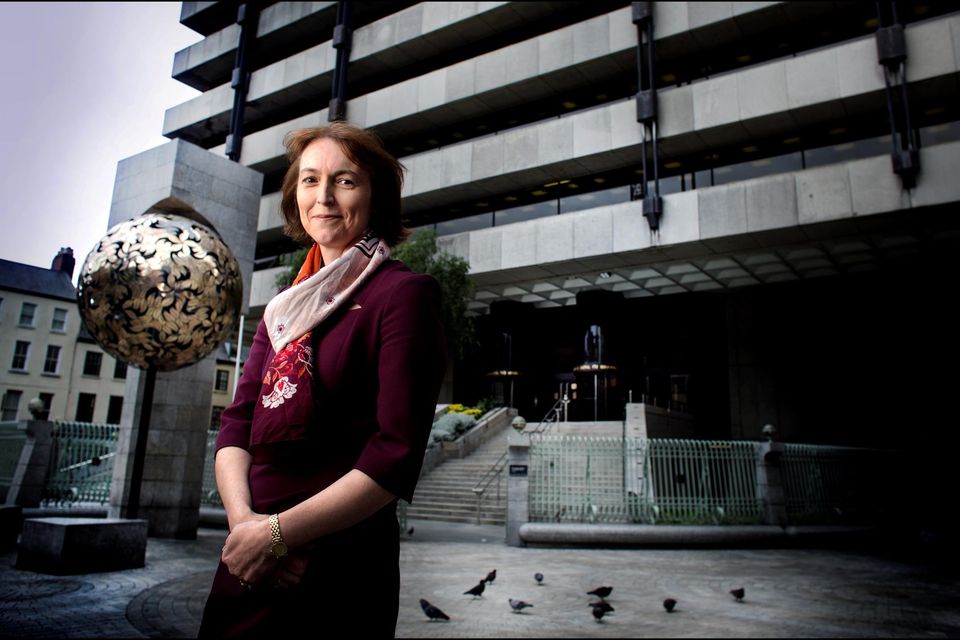Donnery tells banks that customers think they are greenwashing
Central Bank deputy governor Sharon Donnery. Photo: David Conachy
Central Bank deputy governor Sharon Donnery has warned bankers that consumers do not fully trust the climate and sustainability claims they are making about their products.
Speaking at the Banking and Payment Federation of Ireland (BPFI) annual conference, Ms Donnery said the issue had emerged during the Central Bank’s ongoing review of the Consumer Protection Code.
She said preliminary findings from the review suggested environmental, social and governance disclosures, reporting, labelling and advertising could be regarded as “greenwashing”.
“Whilst the findings are still being consider, a need to increase trust in the sustainability claims of the products currently being offered has come through,” Ms Donnery said.
“Any sense that firms are pursuing shareholders’ interests at the expense of their customers, or the environment, will be hugely damaging – the firms themselves and so ultimately their shareholders, but also to their customers, and to the generational challenge of transitioning to a climate neutral economy.”
Ms Donnery said there was danger that banks and other financial firms, despite developing green lending products and issuing sustainable bonds, might lose sight of “structural challenges” like climate change by focusing too much on near-term risks like inflation.
She said climate change was an “existential challenge” to the banking system, as it would ultimately reflect what is happening in the wider economy.
She added that European Central Bank climate stress tests had discovered “many deficiencies, data gaps and inconsistencies across institutions” in terms of climate reporting and were behind the curve in incorporating climate risk into product offerings.
“Many banks also appeared to lack clearly defined long-term strategies for credit allocation policies that reflect the various transition paths, or are in the early stages of factoring climate risk into their credit risk models,” she said.
She warned that financial institutions had only until the end of next year to get up to speed in terms of meeting the Central Bank’s supervisory expectations on climate risk.
She said the Central Bank’s own thematic review of the industry found many institutions were far from prepared for the application of environmental risk assessment in financial regulation.
“Crucially we have also found that boards do not have clear, credible and achievable plans in place, supported by the necessary resources and capabilities, to meet the supervisory expectations in respect of climate related and environmental risks,” she said.
“A wait and see approach is no longer feasible.”














